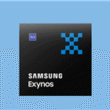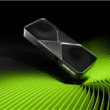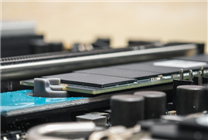Kioxia and NVIDIA Revolutionize SSD Technology: A Leap Toward Next-Gen AI Computing
Summary:
- Partnership: Kioxia collaborates with NVIDIA to develop ultra-fast SSDs aimed at generative AI applications.
- Performance: New SSDs will achieve speeds of 100 million IOPS, significantly improving data transfer efficiency.
- Future-Ready: Expected to support PCIe 7.0, paving the way for innovations in AI server storage.
In a groundbreaking partnership, Kioxia is teaming up with NVIDIA to develop a new solid-state drive (SSD) that promises reading speeds nearly 100 times faster than traditional SSDs. This innovative technology, expected to launch before 2027, is designed specifically for the growing server market catering to generative AI computing.
The Need for Speed in AI Technology
Kioxia announced this transformative collaboration during an AI technology briefing in Tokyo. The highlight of this joint initiative is the SSD’s capability to directly connect with GPUs, eliminating the need for data exchange through a CPU. This direct connection is crucial for enhancing data transmission efficiency, especially for demanding AI applications.
The performance of the SSD is expected to reach an astonishing 100 million IOPS per second (Input/Output Operations Per Second), a benchmark that is approximately 100 times faster than that of conventional SSDs. This leap in performance is vital not only for enhancing processing capabilities in AI tasks but also for meeting the stringent requirements of NVIDIA’s GPUs, which target IOPS figures of 200 million.
Pioneering Technological Advancements
What makes this SSD particularly innovative is its planned compatibility with the next-generation PCIe 7.0 interface. By laying the groundwork for high-speed data transmission, Kioxia aims to address the critical demand for high-speed memory solutions in AI computing environments.
In addition to facilitating enhanced GPU memory capacities, Kioxia envisions the SSD as a viable alternative to High Bandwidth Memory (HBM). This shift could potentially lower costs and increase scalability for AI servers, offering a more resilient and efficient memory solution.
Implications for AI Server Storage
The collaboration between Kioxia and NVIDIA signals a major turning point in AI server storage technology. As the demand for generative AI escalates, their innovative SSDs are poised to accelerate not only the development of AI technologies but also their application across various industries.
The focus on creating a product that prioritizes extreme speed and efficiency demonstrates Kioxia’s commitment to driving the future of data-intensive computing. This partnership is set to redefine performance standards in the storage sector and address the evolving needs of modern AI systems.
With these advancements, Kioxia and NVIDIA are not just stepping into the future—they are shaping it, paving the way for more sophisticated and powerful AI capabilities that could redefine how we interact with technology.
In conclusion, this collaboration is more than just a technological upgrade; it’s a cornerstone for the next generation of AI computing. The investment in faster, more efficient SSDs provides a promising glimpse into the future, highlighting the critical role that innovative partnerships play in driving forward the capabilities of artificial intelligence.
As we await the launch of these next-gen SSDs, the tech community is abuzz with excitement over the transformative potential that Kioxia and NVIDIA’s collaboration promises. The journey toward extreme computational performance has only just begun, and the possibilities are limitless.
This article elucidates the potential impacts of Kioxia and NVIDIA’s collaboration on SSD technology and AI computing. As industry needs evolve, so too will the innovations that support them, setting the stage for the next wave of technological breakthroughs.









